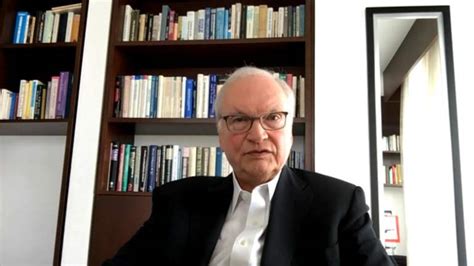A Quote by Edward Hallowell
A human moment is a term I invented to distinguish in-person communication from electronic. Human moments are exponentially more powerful than electronic ones. I mean face-to-face, in-person contact and communication. I have identified several modern paradoxes and the first is that, for various reasons, we have grown electronically superconnected but we have simultaneously grown emotionally disconnected from each other.
Related Quotes
Today, the best way to communicate with someone is still face-to-face. Virtual reality has the potential to change that, to make it where VR communication is as good or better than face-to-face communications, because not only do you get all the same human cues as real-world communication, you basically suspend the laws of physics, you can do whatever you want, you can be wherever you want.
Sure, end-to-end encryption means that whether it's a phone call we're on or an email message we're sending or any form of electronic communication, that the content of that communication is encrypted from your device, such as your phone or PC, unto the other person's device at the other side, wherever they might be on the planet Earth.
On the information technology side, health care is still behind other industries. There needs to be a real push to create better electronic health records, more inter-operability amongst various types of electronic systems and cybersecurity is becoming a huge deal in in health care. Health care records are highly sought after by virtue of the fact that not only do you have somebody's person financial information, you also have their person medical information.
It all stems from the same thing - which is that when we are face to face - and this is what I think is so ironic about Facebook being called Facebook, because we are not face to face on Facebook ... when we are face to face, we are inhibited by the presence of the other. We are inhibited from aggression by the presence of another face, another person. We're aware that we're with a human being. On the Internet, we are disinhibited from taking into full account that we are in the presence of another human being.
A person is a person through other persons. None of us comes into the world fully formed. We would not know how to think, or walk, or speak, or behave as human beings unless we learned it from other human beings. We need other human beings in order to be human. I am because other people are. A person is entitled to a stable community life, and the first of these communities is the family.
Human communication, 'as the saying goes, is a clash of symbols' it covers a multitude of signs. But it is more than media and messages, information and persuasion; it also meets a deeper need and serves a higher purpose. Whether clear or garbled, tumultuous or silent, deliberate or fatally inadvertent, communication is the ground of meeting and the foundation of community. It is, in short, the essential human connection.

































